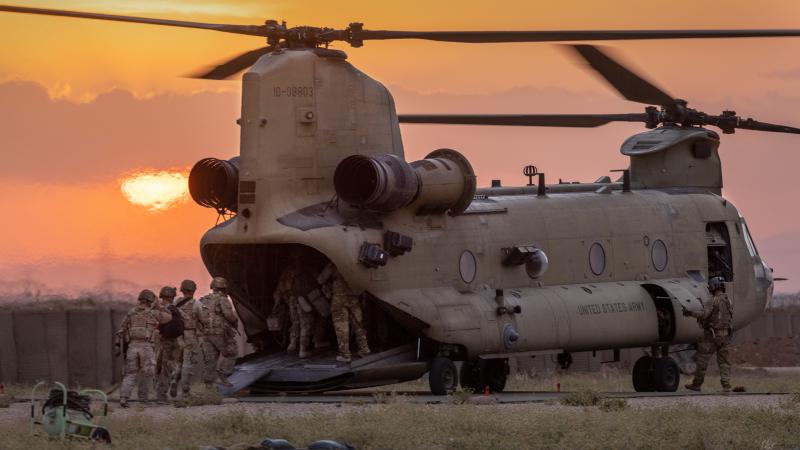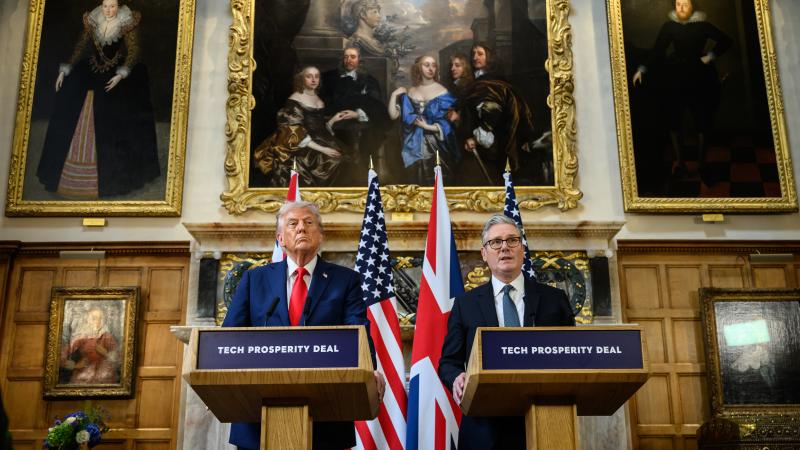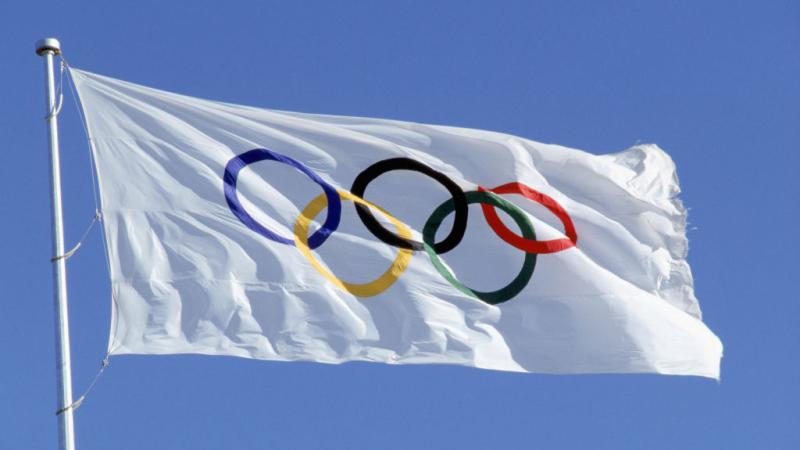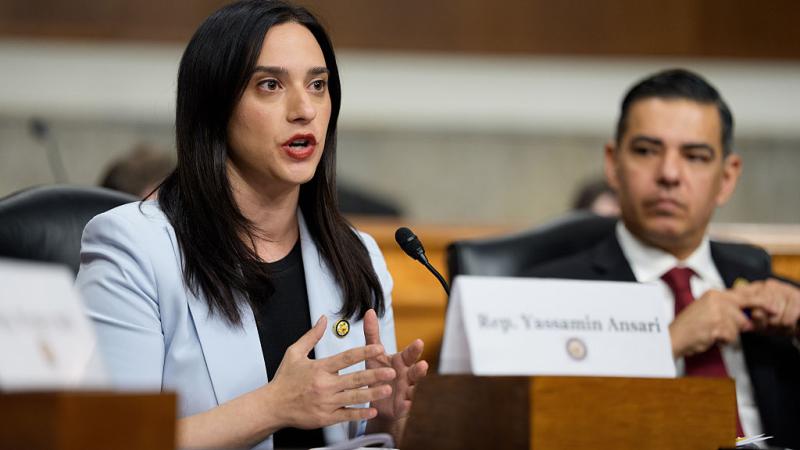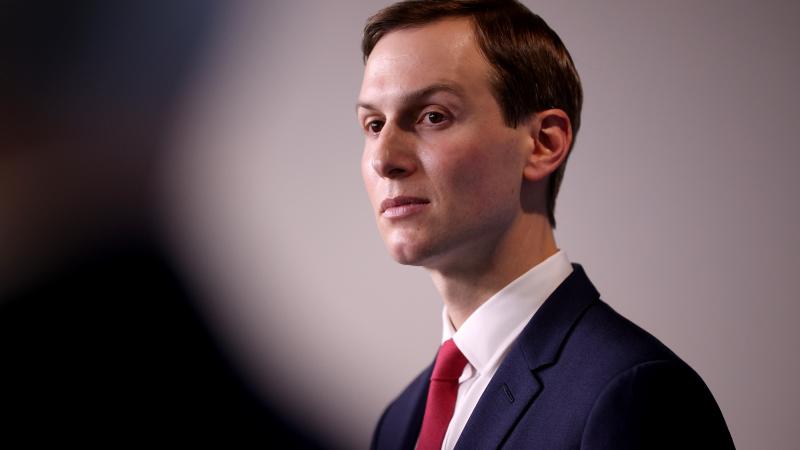As North Korea escalates weapons activity, Biden does little to pressure regime: experts
North Korea is testing a record number of missiles and possibly prepping for a nuclear test, but observers warn the Biden administration is reluctant to impose significant costs.
With North Korea testing a record number of missiles this year and U.S. officials warning of a potentially imminent nuclear test, the Biden administration is doing little to pressure the regime of Kim Jong-un, according to experts who spoke to Just the News.
"Despite pledges to resume pressure on North Korea and highlight regime human rights violations, the Biden administration has done little on either issue," said Bruce Klingner, a senior research fellow at the Heritage Foundation. "As was the case with its predecessors, the Biden administration has been reluctant to impose sanctions on North Korea as well as Chinese banks and businesses facilitating regime violations of United Nations resolutions."
The administration didn't impose its first sanctions on North Korea until December 2021, when the U.S. sanctioned North Korean entities and individuals for human rights abuses. Experts said at the time that the sanctions were largely symbolic and would have minimal impact on the regime's human rights abuses or its nuclear and missile programs.
The first weapons-related sanctions against North Korea didn't come until January in response to a missile test.
The U.S. subsequently imposed sanctions for North Korean missile tests in March, May, and earlier this month. The most recent economic penalties came after North Korea conducted six ballistic missile tests over 12 days, including one launched over Japan.
North Korean state media said the flurry of tests — which Secretary of State Antony Blinken called "unprecedented in their pace, scale, and scope" — were designed to simulate showering neighboring South Korea with tactical nuclear weapons following military drills between U.S. and South Korean forces.
"The United States is sending a clear message that we will continue to take actions against those who support the development and sustainment of [North Korea's] military and weapons arsenal," Blinken said while announcing the sanctions.
According to a recent report from the America First Policy Institute, however, imposing costs on North Korea has hardly been a focus of the administration.
"President Biden's approach to North Korea is a policy of neglect, disregard, and
incompetence," wrote Fred Fleitz, a former CIA analyst and senior National Security Council official. "It is very clear that Biden administration officials regard North Korea as a low-
priority security threat. Given its interaction with President Trump and Secretary [of State Mike] Pompeo during the Trump administration, Pyongyang probably considered the Biden administration's efforts to engage it with a lower-level part-time official as a significant slight."
The part-time official to whom Fleitz referred was Sung Kim, whom Biden kept on as the U.S. special envoy for North Korea, a position he held in the Trump administration. However, Kim also retained his post as ambassador to Indonesia, making his North Korea role part-time.
The Biden administration has also yet to appoint an envoy for North Korean human rights issues, a position which has remained vacant for six years.
Meanwhile, North Korea has tested a record number of missiles this year — up to 51, according to some estimates, including the most recent launches on Friday and launches earlier this year both immediately before and after Vice President Kamala Harris visited the Korean peninsula.
Last year, Pyongyang conducted only eight missile tests.
U.S. and South Korean officials are also sounding the alarm that North Korea is preparing for its seventh ever test of a nuclear weapon and first since 2017, warning of a "decisive" response should North Korean leader Kim Jong-un follow through. South Korean intelligence has assessed the nuclear test could come any day, perhaps on the eve of the midterm elections in the U.S.
"The next nuclear test is likely to be much smaller than the massive 250 kiloton test of a hydrogen bomb in 2017," said Klingner. "During the past two years, the regime has highlighted its development of tactical nuclear warheads to be deployed to frontline units. It has developed a dozen or more improved short- and medium-range missiles in recent years, most of which will be capable of delivering nuclear warheads. The testing of a small tactical warhead for battlefield use will exponentially increase the threat to South Korea and Japan as well as U.S. forces stationed there."
Experts explained that North Korea's wave of provocations are part of both Kim's longstanding strategy of developing the capabilities to become a potent nuclear power as well as short-term circumstances such as the U.S. and South Korea resuming joint military exercises, the world being distracted by Russia's war in Ukraine, and North Korea believing China and Russia will protect it from consequences at the U.N.
Another factor is President Biden's foreign policy, according to Fleitz.
"The current administration's neglect of North Korea and record of foreign policy failures in 2021 appears to have precipitated a resurgence of North Korean belligerence and provocations in 2022, including a large number of missile tests, threats to attack South Korea with nuclear weapons, apparent preparations to conduct an underground nuclear test, and Pyongyang's support for Russia's invasion of Ukraine," Fleitz wrote in his report. "There are several possible reasons why North Korea may have delayed staging provocations until nine months into the Biden administration ... The most likely reason was President Biden's poor foreign policy record — well known by September 2021 — and a growing perception of American weakness and indecisiveness."
There was a noticeable uptick in North Korean missile tests in the fall of 2021.
On the John Solomon Reports podcast last week, Fleitz pointed specifically to Biden's August 2021 withdrawal of all U.S. troops from Afghanistan as a key reason for increased North Korean aggression.
"This all happened after Afghanistan," he said. "The North Koreans saw they were being ignored by the Biden administration. They saw Biden's weakness, and they ramped up their WMD programs."
The month of the Afghanistan withdrawal, the U.N.'s nuclear watchdog, the International Atomic Energy Agency (IAEA), released a report revealing North Korea ended what had appeared to be a slowdown in its nuclear weapons program, finding the regime had resumed illicit activity at its Yongbyon nuclear reactor earlier in the year.
The Biden administration has yet to seek U.N. Security Council action or otherwise punish North Korea for restarting the Yongbyon reactor.
One month after the IAEA report came out, Biden made only two brief references to North Korea during his first speech to the U.N. General Assembly. In this year's U.N. speech, Biden devoted just one sentence to Pyongyang.
The administration's official National Security Strategy, which was published earlier this month, similarly only referenced North Korea by name in a single sentence.
Pyongyang's most recent missile tests on Friday came one day after a senior State Department official told a Washington nuclear conference that the administration would be willing to engage in arms-control talks with North Korea.
"If they would have a conversation with us ... arms control can always be an option if you have two willing countries willing to sit down at the table and talk," said Bonnie Jenkins, undersecretary of state for arms control. "And not just arms control, but risk reduction — everything that leads up to a traditional arms-control treaty and all the different aspects of arms control that we can have with them. We've made it very clear to [North Korea] ... that we're ready to talk to them — we have no preconditions."
According to some experts, however, arms control negotiations should be a no-go.
"What [the U.S.-South Korea alliance] must not do is give in to the North Korean apologists who are calling for arms control negotiations," said David Maxwell, senior fellow at the Foundation for Defense of Democracies. "Giving the concession of arms control negotiations will confirm to Kim that his strategy of political warfare and blackmail diplomacy works."
When asked about Jenkins' comments, State Department spokesman Ned Price said: "I want to be very clear about this. There has been no change to U.S. policy."
Price explained to reporters that U.S. policy remained "the complete denuclearization of the Korean Peninsula," adding: "We continue to be open to diplomacy with [North Korea], we continue to reach out to the DPRK, we're committed to pursuing a diplomatic approach. We're prepared to meet without preconditions and we call on the DPRK to engage in serious and sustained diplomacy."
Experts explained that talks with North Korea are unlikely because Kim is refusing to engage in dialogue, wanting to set favorable conditions first in hopes of securing sanctions relief.
But for many observers, the solution to North Korean nuclear weapons is a unified, nuclear-free Korean peninsula — an outcome they say is impossible with Kim in power.
"The bottom line is if the Kim family regime remains in power, there will be major strategic threats — nuclear weapons use and war as well as the worst crimes against humanity in the modern era," said Maxwell. "It is time to finally acknowledge what has long been known but officials have been reluctant to state: The root of all problems in Korea is the continued existence of the mafia-like crime family cult known as the Kim family regime that has the objective of dominating the Korean peninsula under the rule of the Guerrilla Dynasty and Gulag State."
The regime's "threefold strategy of political warfare and blackmail diplomacy while simultaneously developing advanced war-fighting capabilities that creates dilemmas for the [U.S.-South Korea] alliance," he added, "will likely be the cause of any future conflict in Northeast Asia."


